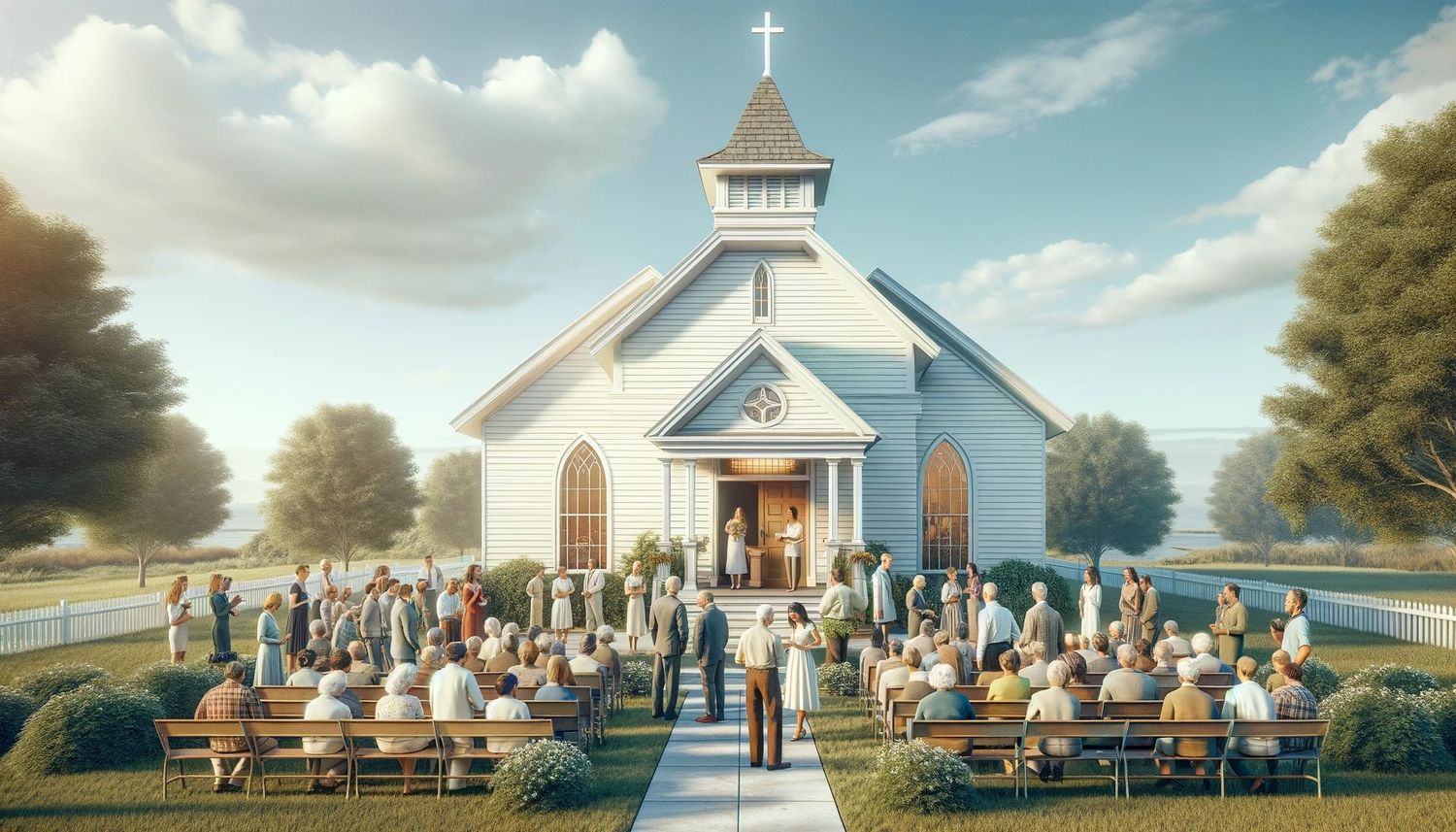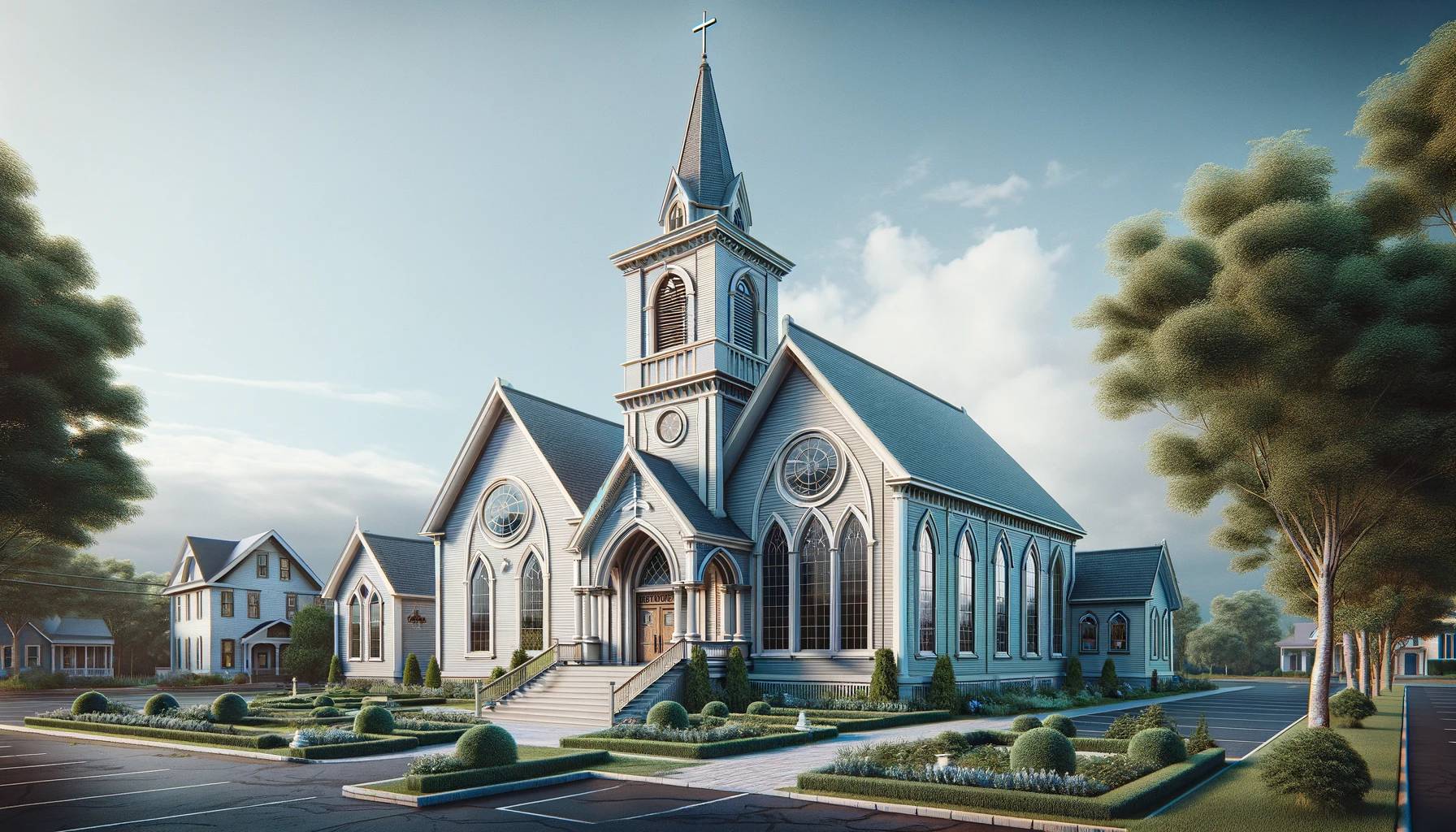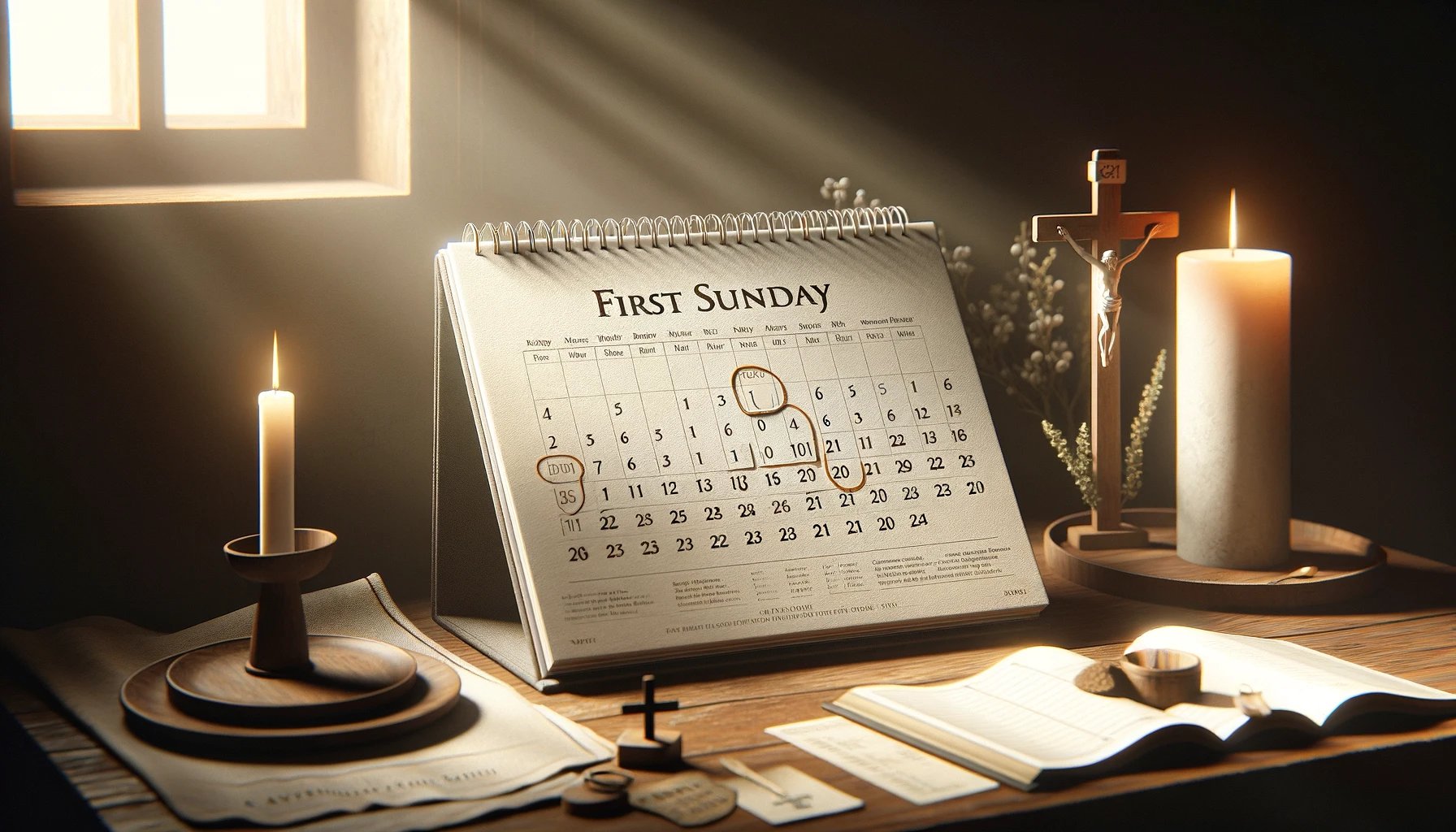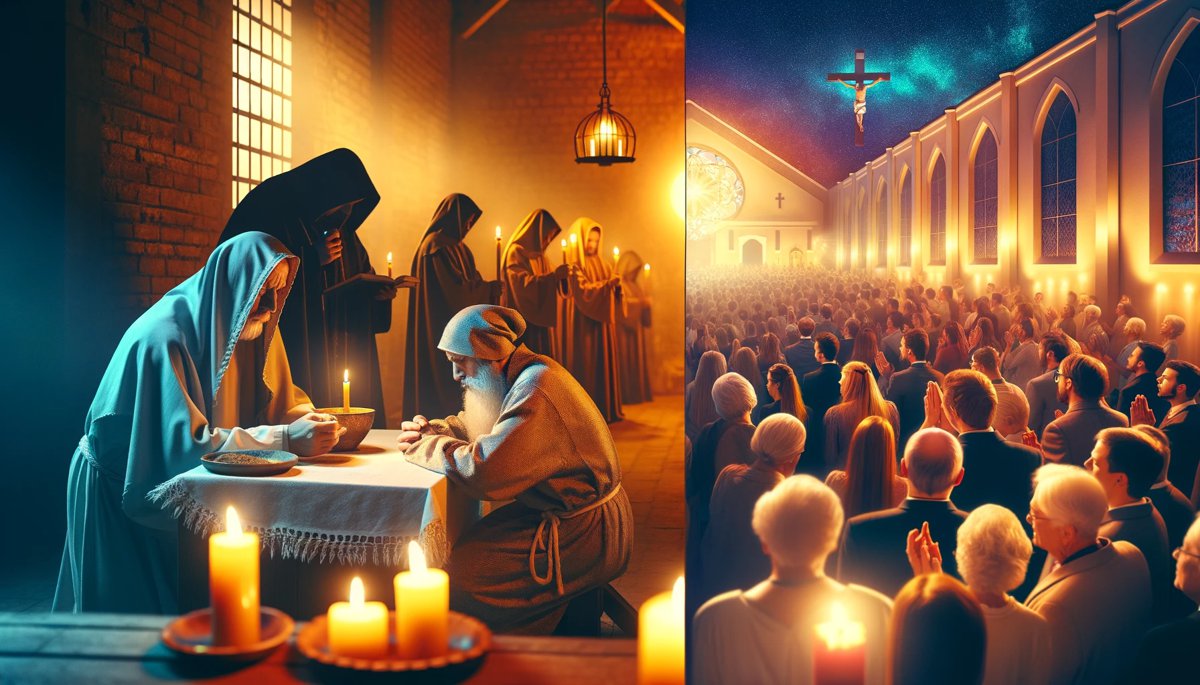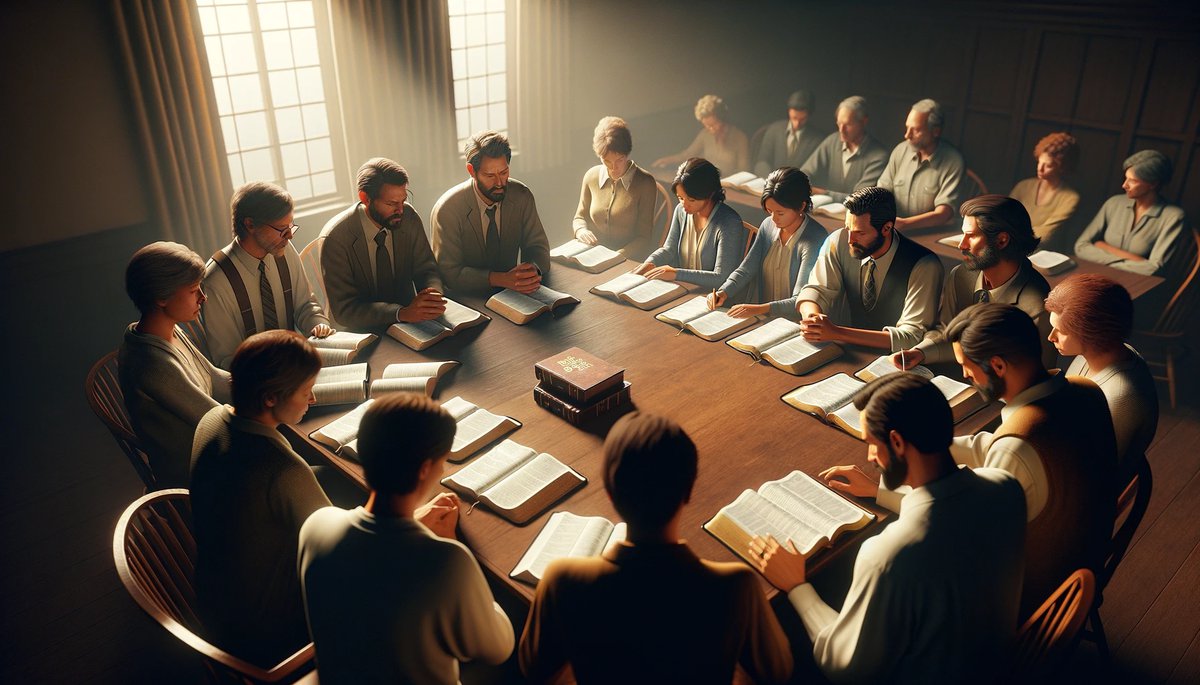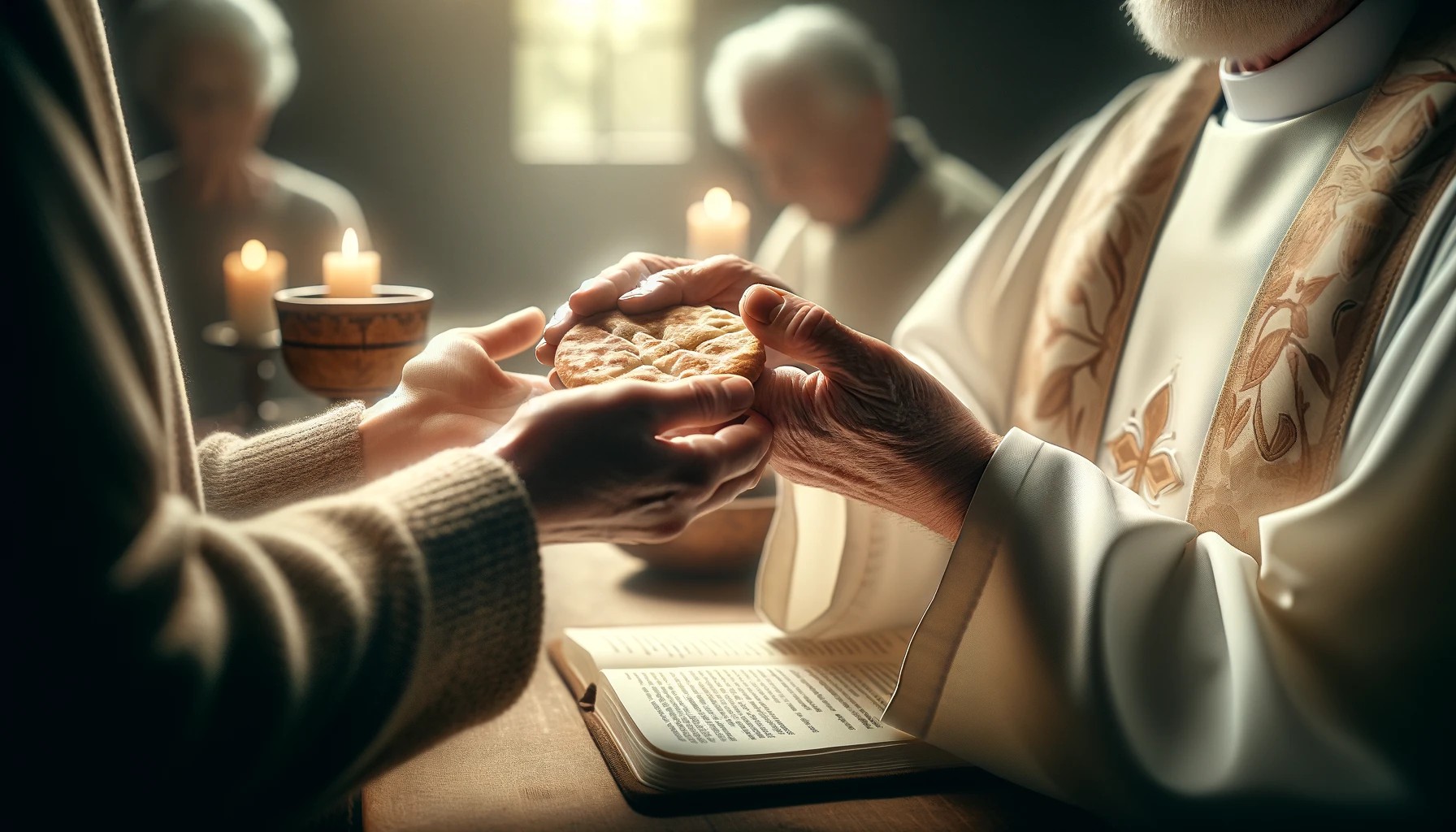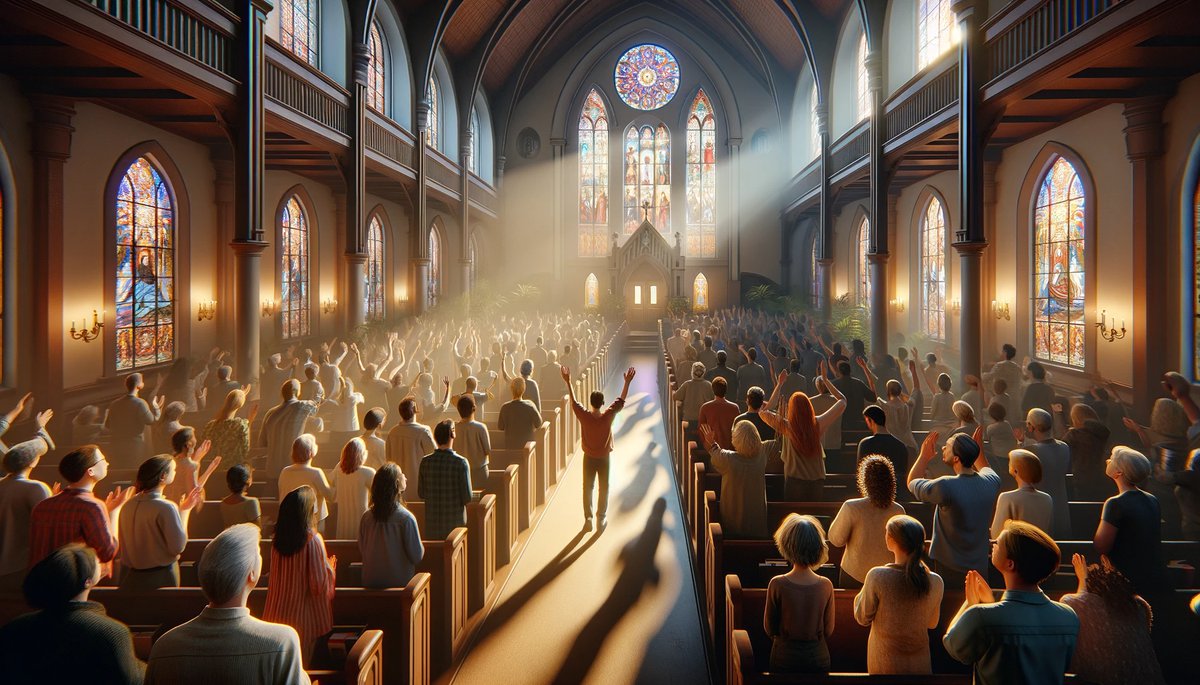Home>Theology and Spirituality>Why Do Baptist Worship On Sunday


Theology and Spirituality
Why Do Baptist Worship On Sunday
Published: February 20, 2024
Peter Smith, Editorial Director at Christian.net, combines deep insights into faith, politics, and culture to lead content creation that resonates widely. Awarded for his contributions to religious discourse, he previously headed a major organization for religious communicators, enhancing dialogue on faith's societal impacts.
Discover the theological reasons behind Baptist worship on Sunday and the spiritual significance of this practice. Explore the intersection of theology and spirituality in Baptist worship traditions.
(Many of the links in this article redirect to a specific reviewed product. Your purchase of these products through affiliate links helps to generate commission for Christian.net, at no extra cost. Learn more)
Table of Contents
Introduction
The worship practices of the Baptist tradition are deeply rooted in history, theology, and community. Understanding the reasons behind these practices provides valuable insights into the beliefs and values of Baptist congregations. One of the fundamental aspects of Baptist worship is the observance of Sunday as the primary day for communal worship. This tradition is not arbitrary; rather, it is grounded in historical, theological, and practical considerations that have shaped the identity of Baptist communities for centuries.
The significance of Sunday worship in the Baptist tradition extends beyond mere ritual observance. It reflects a profound commitment to honoring the resurrection of Jesus Christ, the cornerstone of Christian faith. By delving into the historical background and theological underpinnings of this practice, we can gain a deeper appreciation for its enduring importance within the Baptist faith.
Understanding the historical context of Baptist worship practices provides valuable insights into the evolution of this tradition. Moreover, exploring the theological foundations of Sunday worship sheds light on the spiritual significance attributed to this day within the Baptist tradition. Additionally, comparing these practices with those of other Christian denominations offers a broader perspective on the diversity of worship traditions and their underlying theological rationales.
As we embark on this exploration of Baptist worship practices, we will uncover the rich tapestry of history, theology, and community that shapes the observance of Sunday as a day of worship in the Baptist tradition. This journey will illuminate the profound significance of this practice and its enduring impact on the spiritual lives of Baptist congregations.
Read more: How Do Baptist Worship
Historical background of Baptist worship practices
The historical roots of Baptist worship practices can be traced back to the early centuries of Christianity. The Baptist tradition emerged within the context of the Protestant Reformation, which sought to reform and purify the practices of the Christian church. Central to this movement was the emphasis on returning to the foundational teachings and practices of the early Christian church as described in the New Testament.
In the early centuries of Christianity, Sunday gradually became established as the primary day for Christian worship. This transition was influenced by various factors, including the significance of Sunday in the New Testament, the commemoration of the resurrection of Jesus Christ, and the gradual separation of Christianity from its Jewish roots. As a result, Sunday emerged as the day when early Christian communities gathered for worship, fellowship, and the celebration of the Eucharist.
The Protestant Reformation, which gave rise to the Baptist tradition, sought to align its practices with the teachings and examples found in the New Testament. This included a renewed emphasis on the authority of Scripture and a desire to restore the simplicity and authenticity of early Christian worship. As a result, the observance of Sunday as the day of communal worship became a central feature of Baptist congregational life.
Furthermore, the Baptist tradition has historically emphasized the priesthood of all believers, affirming the role of each individual in the worship and ministry of the church. This emphasis on the priesthood of all believers contributed to the development of a participatory and community-oriented approach to worship, where the entire congregation actively engages in the worship experience.
The historical background of Baptist worship practices reflects a commitment to honoring the early Christian traditions while embracing the principles of the Protestant Reformation. This historical trajectory has shaped the distinctive worship practices of Baptist congregations, including the observance of Sunday as the primary day for communal worship. By understanding this historical context, we gain valuable insights into the enduring legacy of Baptist worship practices and their significance within the broader tapestry of Christian history.
Theological reasons for Sunday worship in the Baptist tradition
The theological reasons for Sunday worship in the Baptist tradition are deeply rooted in the interpretation of biblical teachings and the theological significance attributed to the resurrection of Jesus Christ. Central to this theological framework is the understanding that Sunday, as the day of Christ's resurrection, holds profound spiritual and symbolic significance for Baptist congregations.
At the core of Baptist theology is the belief in the authority of Scripture and the primacy of the New Testament as the foundational source of Christian doctrine and practice. The New Testament accounts, particularly the Gospels and the writings of the early Christian church, establish Sunday as the day of Christ's resurrection. This pivotal event, which lies at the heart of Christian faith, is commemorated and celebrated through the observance of Sunday as the day of communal worship.
Furthermore, the theological rationale for Sunday worship in the Baptist tradition is intricately linked to the concept of the "Lord's Day." This term, derived from the Book of Revelation in the New Testament, underscores the significance of Sunday as a day of worship and spiritual reflection. The early Christian communities, including those to whom the Book of Revelation was addressed, recognized Sunday as a day set apart for honoring the risen Lord and gathering for communal worship.
In addition to the scriptural foundation, the theological reasons for Sunday worship in the Baptist tradition are intertwined with the understanding of the Christian community as the "body of Christ." Sunday worship serves as a tangible expression of the unity and fellowship shared among believers, reflecting the interconnectedness of the body of Christ as it comes together to worship, pray, and partake in the sacraments.
Moreover, the theological significance of Sunday worship is underscored by the emphasis on the redemptive work of Christ. The resurrection, which Sunday commemorates, represents the triumph of life over death, hope over despair, and the fulfillment of God's salvific plan for humanity. As such, Sunday worship in the Baptist tradition becomes a testament to the transformative power of Christ's resurrection and a proclamation of the hope and renewal found in the gospel message.
By embracing Sunday as the day of communal worship, Baptist congregations affirm their theological commitment to the foundational truths of the Christian faith, particularly the centrality of Christ's resurrection and its enduring impact on the life of the church. This theological framework not only informs the practice of Sunday worship but also shapes the spiritual identity and communal ethos of Baptist congregations, anchoring them in the rich tapestry of Christian theology and tradition.
Comparison with other Christian denominations
The observance of Sunday as the primary day for communal worship is a practice shared by many Christian denominations, each with its own theological and historical perspectives. While the significance of Sunday worship is a unifying factor across various Christian traditions, differences in emphasis, interpretation, and cultural influences contribute to distinct expressions of this shared practice.
In the Catholic tradition, Sunday holds a central place in the liturgical calendar as the "Lord's Day," echoing the theological significance attributed to Sunday worship in the Baptist tradition. The celebration of the Eucharist, or Mass, is a hallmark of Catholic Sunday worship, emphasizing the sacramental and sacrificial aspects of the Eucharistic celebration. Additionally, the Catholic understanding of Sunday as a day of rest and spiritual renewal aligns with the emphasis on the sacred nature of Sunday within the Baptist tradition.
In contrast, some Protestant denominations, such as Lutherans and Anglicans, maintain a liturgical approach to Sunday worship, incorporating formalized rituals, liturgical readings, and a structured order of worship. This emphasis on liturgical elements reflects a deep connection to historical Christian practices and the preservation of a rich liturgical heritage. While the Baptist tradition may exhibit a more flexible and participatory worship style, the shared commitment to Sunday worship underscores a common recognition of the significance of this day within the broader Christian context.
Furthermore, within evangelical and non-denominational Christian communities, Sunday worship often emphasizes dynamic and expressive forms of worship, including contemporary music, expository preaching, and a focus on personal spiritual growth. This approach reflects a commitment to engaging the congregation in a vibrant and participatory worship experience, aligning with the Baptist emphasis on the priesthood of all believers and the active involvement of the congregation in worship.
The comparison with other Christian denominations highlights both the shared reverence for Sunday as a day of worship and the diverse expressions of this shared practice. While theological and cultural differences shape the specific nuances of Sunday worship within each tradition, the common thread of honoring the resurrection of Jesus Christ and gathering in community for worship unites Christians across denominational lines.
By recognizing the similarities and distinctions in the observance of Sunday worship, Baptist congregations gain a broader appreciation for the rich tapestry of Christian worship practices and the diverse ways in which the significance of Sunday is expressed within the larger body of Christ.
Practical implications of Sunday worship for Baptist congregations
The observance of Sunday as the primary day for communal worship holds profound practical implications for Baptist congregations, shaping their spiritual rhythms, community dynamics, and outreach efforts. This practice extends beyond theological significance to permeate the practical aspects of congregational life, fostering a sense of unity, spiritual nourishment, and mission-driven engagement.
Spiritual Rhythms and Discipleship
Sunday worship serves as the cornerstone of spiritual formation and discipleship within Baptist congregations. It provides a regular and communal opportunity for believers to engage in corporate worship, receive biblical teaching, participate in sacraments such as communion, and engage in prayer. This consistent rhythm of gathering for worship on Sundays nurtures a deep sense of spiritual connectedness and fosters a shared commitment to growing in faith and understanding of God's Word.
Community Dynamics and Fellowship
The observance of Sunday worship cultivates a vibrant sense of community and fellowship among Baptist congregants. It serves as a focal point for believers to come together, share in each other's joys and burdens, and build meaningful relationships within the faith community. Sunday worship becomes a catalyst for fostering a supportive and caring church family, where members find encouragement, accountability, and a sense of belonging.
Mission and Outreach Orientation
Sunday worship propels Baptist congregations into a mission and outreach-oriented mindset. It serves as a launching pad for equipping and mobilizing believers to engage in acts of service, evangelism, and community impact throughout the week. The spiritual nourishment and communal unity experienced during Sunday worship empower congregants to live out their faith in practical ways, extending the love of Christ to their neighborhoods, workplaces, and beyond.
Stewardship of Resources and Gifts
The observance of Sunday worship prompts Baptist congregations to steward their resources and spiritual gifts for the edification of the body and the advancement of God's kingdom. It provides a platform for congregants to contribute their time, talents, and financial resources toward the collective worship experience, ministry initiatives, and outreach endeavors. Sunday worship thus becomes a catalyst for activating the diverse gifts and resources present within the faith community.
Generational Impact and Legacy Building
Sunday worship plays a pivotal role in shaping the generational impact and legacy of Baptist congregations. It provides a consistent and formative experience for children, youth, and adults alike, nurturing a shared heritage of faith and worship practices. The continuity of Sunday worship across generations fosters a sense of belonging and identity within the faith community, ensuring the transmission of core values and beliefs to future cohorts of believers.
In essence, the observance of Sunday worship holds multifaceted practical implications for Baptist congregations, permeating every aspect of their communal life, spiritual growth, and mission endeavors. It serves as a unifying force, a catalyst for mission, and a foundational pillar upon which the vibrant tapestry of Baptist congregational life is woven.
Conclusion
In conclusion, the observance of Sunday as the primary day for communal worship in the Baptist tradition is not merely a matter of routine practice; rather, it is a reflection of profound historical, theological, and practical considerations that shape the identity and communal life of Baptist congregations. The historical background of Baptist worship practices reveals a commitment to honoring early Christian traditions while embracing the principles of the Protestant Reformation, which emphasized a return to the foundational teachings and practices of the New Testament church. This historical trajectory has contributed to the distinctive worship practices of Baptist congregations, including the observance of Sunday as the day of communal worship.
From a theological perspective, the significance of Sunday worship in the Baptist tradition is deeply rooted in the interpretation of biblical teachings and the theological significance attributed to the resurrection of Jesus Christ. The theological framework underscores the centrality of Christ's resurrection and its enduring impact on the life of the church, anchoring Baptist congregations in the rich tapestry of Christian theology and tradition.
Comparing the observance of Sunday worship with other Christian denominations highlights both the shared reverence for Sunday as a day of worship and the diverse expressions of this shared practice. While theological and cultural differences shape the specific nuances of Sunday worship within each tradition, the common thread of honoring the resurrection of Jesus Christ and gathering in community for worship unites Christians across denominational lines.
The practical implications of Sunday worship for Baptist congregations extend to spiritual rhythms, community dynamics, mission orientation, stewardship of resources, and generational impact. Sunday worship serves as the cornerstone of spiritual formation, fostering a vibrant sense of community and fellowship, propelling congregations into mission and outreach endeavors, activating the diverse gifts and resources within the faith community, and shaping the generational legacy of faith and worship practices.
In essence, the observance of Sunday worship in the Baptist tradition embodies a holistic integration of history, theology, and communal life, reflecting a commitment to honoring the foundational truths of the Christian faith and nurturing vibrant, mission-driven congregational communities. As Baptist congregations continue to gather on Sundays to worship, pray, and engage in fellowship, they embody the enduring legacy of Sunday as a day set apart for honoring the risen Lord and celebrating the transformative power of Christ's resurrection.
